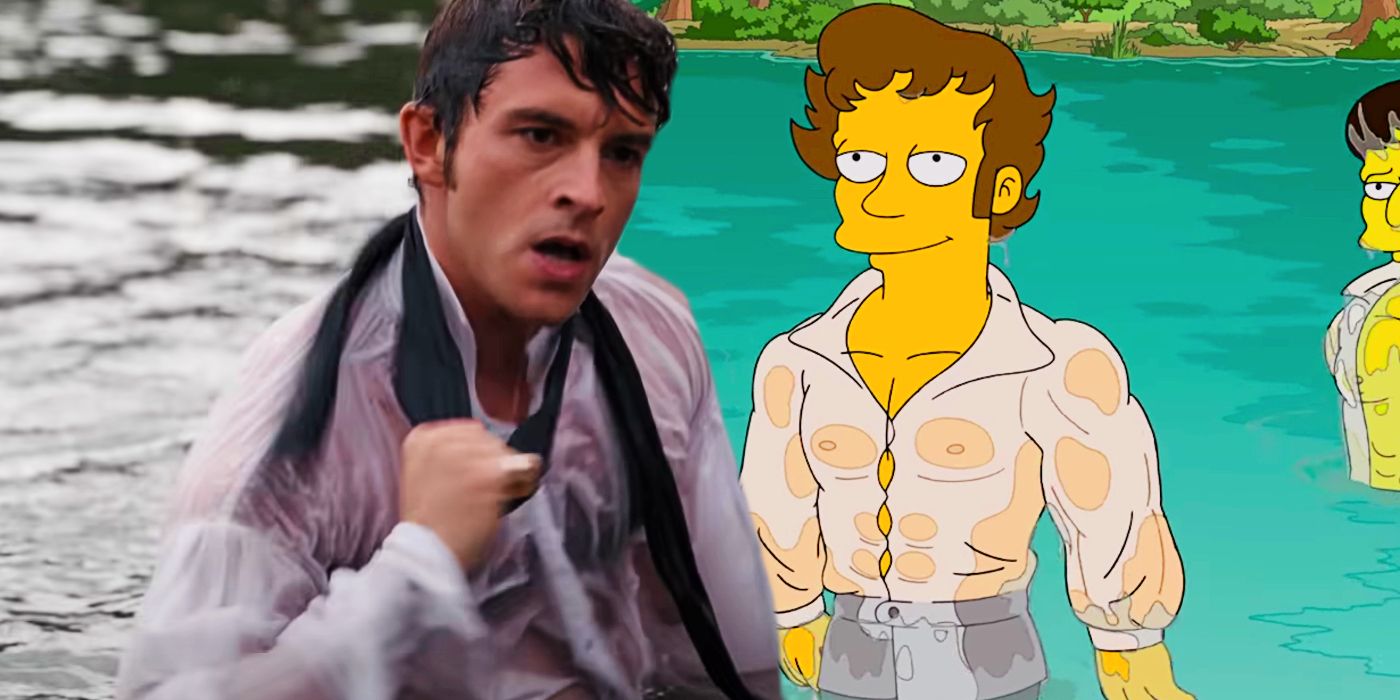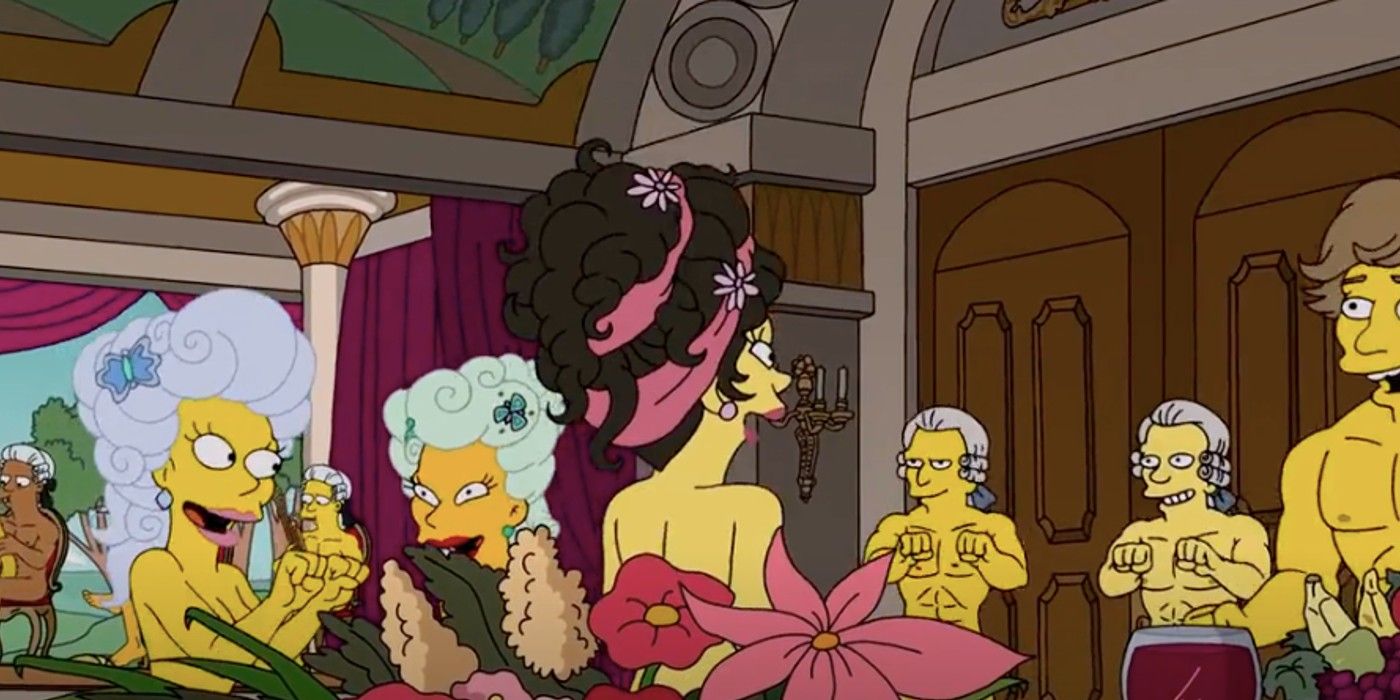While The Simpsons season 33 finale saw the series spoof Netflix hit Bridgerton, the animated comedy's timing could not have been worse. The Simpsons struggled with spoofing popular television shows in season 33. The show’s Netflix parody missed the mark by focusing on shows that are produced by AMC and FX, not the streaming giant, while The Simpsons’ Succession parody squandered a golden opportunity by not casting the titular family as stand-ins for the dysfunctional Roy clan.
This unfortunate trend continued in The Simpsons finale “Poorhouse Rock” (season 33, episode 22). The episode saw Bart taught the tragic history of America’s declining middle class by Hugh Jackman but, before that plot began, Marge and her friends gathered to watch an obvious parody of Netflix’s huge hit Bridgerton early in the episode’s action. However, The Simpsons’ spoof of Bridgerton could have been timed worse.
Even though Bridgerton first aired (and instantly became a huge streaming hit) in December 2020, The Simpsons only got around to parodying the show’s excessive nude scenes in 2022. Sadly for The Simpsons, this episode aired after the far less raunchy, tamer Bridgerton season 2 arrived. While much of The Simpsons season 33’s finale worked, this spoof fell flat and ended up feeling outdated since the Bridgerton parody focuses entirely on the copious amounts of bodice-ripping nude scenes featured on the series, something that simply isn’t present in Bridgerton season 2. While the slip-up could be easily excused by the long production schedules of The Simpsons meaning the episode was likely written before season 2 debuted in March, the fact that numerous publications online discussed Bridgerton season 2’s lack of sex scenes and nudity makes the oversight harder to ignore.
The problem of outdated jokes appearing on The Simpsons is tough to excuse when the series has a habit of shoehorning in extremely timely gags at the last second in an attempt to remain relevant. For example, it would be easy to excuse The Simpsons depicting Angela Merkel as an active politician over a year after her retirement if it weren’t for an earlier episode featuring Homer making a tasteless reference to the invasion of Ukraine by Russia the same week that the event occurred. Similarly, The Simpsons depicting the Comic Book Guy complaining about the show’s Stranger Things parody failing to include references to Stranger Things' then-recent third season would be funnier if a later Simpsons episode didn’t crowbar in a reference to James Cameron’s Avatar 2 to coincide with the release of the sequel’s trailer the same day.
These instances of The Simpsons updating their scripts to reference real-life events or advertise another Disney property prove that the series can change its jokes on the fly when necessary. While some last-minute changes (such as The Simpsons’ Ian Wilcox dedication) are far more justifiable and worthy of inclusion in the series, the addition of cross-promotion and tacky gags about devastating real-life events makes it harder to excuse the shallow Netflix parodies featured on the show. The Simpsons season 33 might have gotten away with a weak Bridgerton spoof a few months earlier, but the show’s parody failed as a result of its irrelevance.


